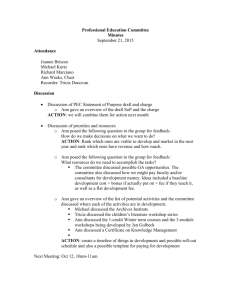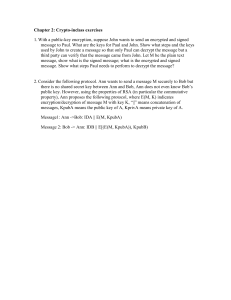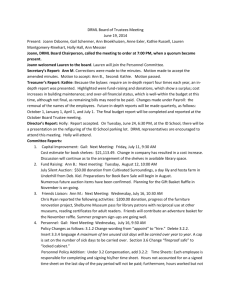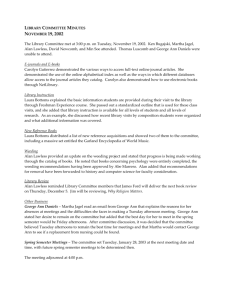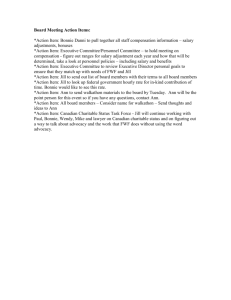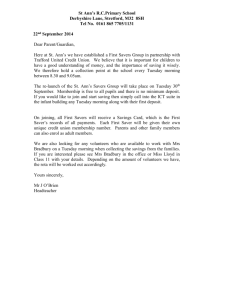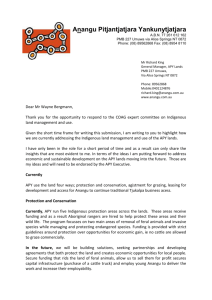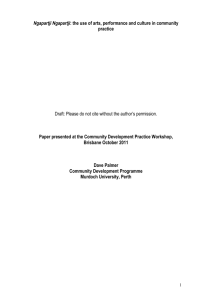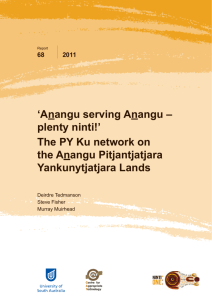DOCX file of Ann Marquard Early Years Manager for the
advertisement
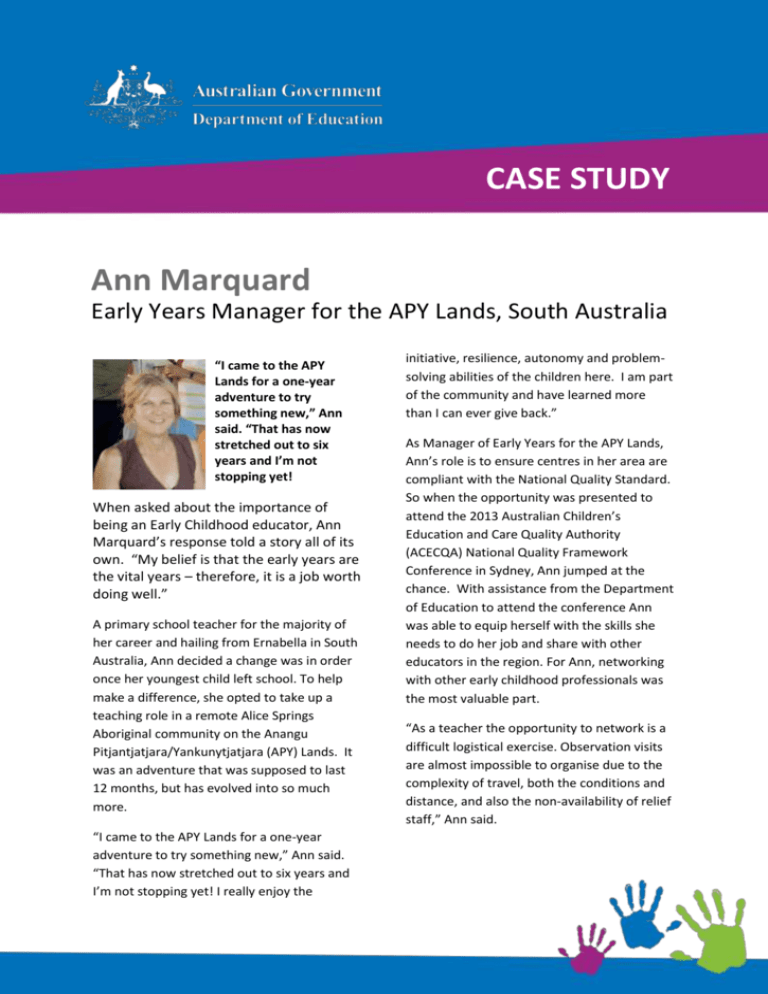
CASE STUDY Ann Marquard Early Years Manager for the APY Lands, South Australia “I came to the APY Lands for a one-year adventure to try something new,” Ann said. “That has now stretched out to six years and I’m not stopping yet! When asked about the importance of being an Early Childhood educator, Ann Marquard’s response told a story all of its own. “My belief is that the early years are the vital years – therefore, it is a job worth doing well.” A primary school teacher for the majority of her career and hailing from Ernabella in South Australia, Ann decided a change was in order once her youngest child left school. To help make a difference, she opted to take up a teaching role in a remote Alice Springs Aboriginal community on the Anangu Pitjantjatjara/Yankunytjatjara (APY) Lands. It was an adventure that was supposed to last 12 months, but has evolved into so much more. “I came to the APY Lands for a one-year adventure to try something new,” Ann said. “That has now stretched out to six years and I’m not stopping yet! I really enjoy the initiative, resilience, autonomy and problemsolving abilities of the children here. I am part of the community and have learned more than I can ever give back.” As Manager of Early Years for the APY Lands, Ann’s role is to ensure centres in her area are compliant with the National Quality Standard. So when the opportunity was presented to attend the 2013 Australian Children’s Education and Care Quality Authority (ACECQA) National Quality Framework Conference in Sydney, Ann jumped at the chance. With assistance from the Department of Education to attend the conference Ann was able to equip herself with the skills she needs to do her job and share with other educators in the region. For Ann, networking with other early childhood professionals was the most valuable part. “As a teacher the opportunity to network is a difficult logistical exercise. Observation visits are almost impossible to organise due to the complexity of travel, both the conditions and distance, and also the non-availability of relief staff,” Ann said. The ACECQA Conference was held over two days in September 2013 and included a number of keynote speakers, including 2005 Young Australian of The Year, Khoa Do. Ann described the event as “a refinement of thoughts and practice” and it presented an excellent opportunity to learn from the working practices and methods of others within the industry. “There were constant little windows into others’ practice, and they have stayed with me,” she said. “The various stories from each break-out session had some learning to take away. It seemed like a show-and-tell, which is a valuable tool.” Ann has found that living away from your family network in a remote location is demanding and there are certain challenges that she has faced along her journey—“The challenges of community life on the doorstep, missing my family, and the sheer amount of travel involved.” Cultural business and funerals also mean a high degree of transience for the students. Each day can bring different students to the setting. Students speak Pitjantjatjara or Yankunytjatjara as their first language, so language differences are one of the biggest challenges. “Observations of children’s play is often guess work because I cannot understand the words. We do not speak the same language so I rely heavily on the Anangu Education Workers,”’ Ann said. For Ann, receiving recognition from the community plays a key role in her enjoyment of what she does. “There was no planning on my part to move down this path. But I’m so glad that I did,” she said. “We feel respected within the community. Anangu people value the workers they perceive as ones who value their family.” Early childhood education is a job worth doing well and Ann does so, each and every day. Ann is currently on her way to completing the fourth year of an Early Childhood degree with funding assistance under the Universal Access Scholarship Programme.
